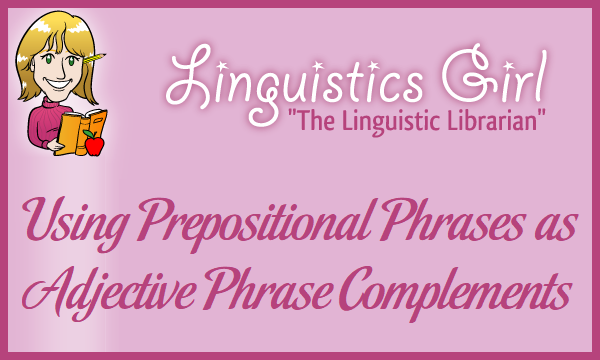Traditional grammars define prepositions as words that related words to other words. A prepositional phrase consists of a preposition plus another word, phrase, or clause that functions as a prepositional complement.
In grammar, an adjective phrase complement is a word, phrase, or clause that completes the meaning of an adjective or adjective phrase. Prepositional phrases often function as adjective phrase complements in English. Examples of prepositional phrases as adjective phrase complements include the following:
- He is angry about his pay decrease.
- The student is bored with the coursework.
- My dog is terrified of thunderstorms.
- Her husband is keen on buying a new car.
- The design on your shirt is similar to my bathroom wallpaper.
- I am fond of mint meltaways.
- Who was responsible for bringing the watermelon salad?
- You should be ashamed of your irresponsible actions.
Prepositional Phrase as Adjective Phrase Complement
References
Brinton, Laurel J. & Donna M. Brinton. 2010. The linguistic structure of Modern English, 2nd edn. Amsterdam: John Benjamins Publishing Company.
Hopper, Paul J. 1999. A short course in grammar. New York: W. W. Norton & Company.
Huddleston, Rodney. 1984. Introduction to the grammar of English. Cambridge: Cambridge University Press.




